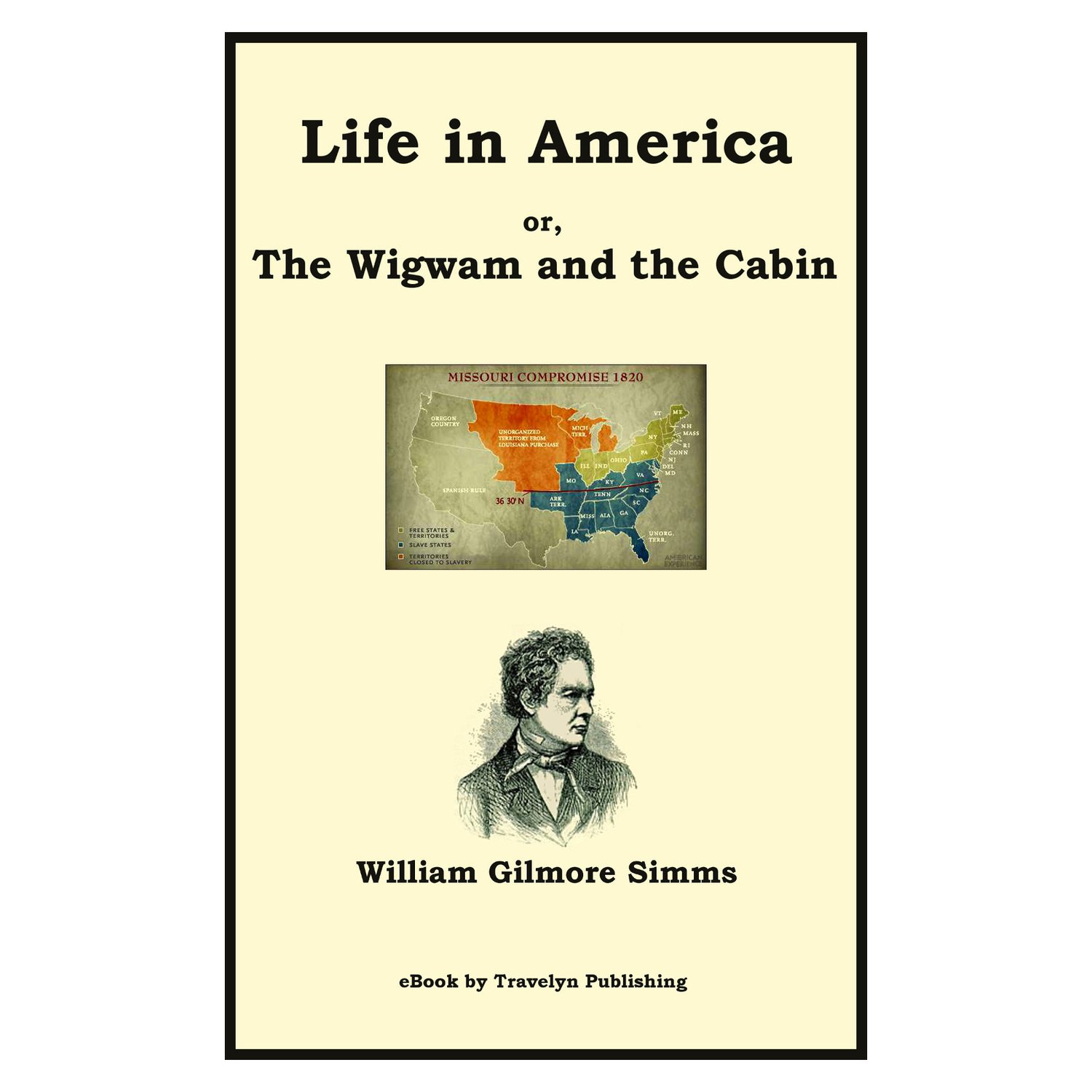
Life in America; or, The Wigwam and the Cabin
This collection of nine stories of the antebellum South, dating from the very founding of the United States as a nation or even earlier in some cases, is surprisingly macabre, eerie, or offbeat in its plotlines. Unusual for early American fiction. Many of these stories take place long before the War between the States, when much of the area barely existed as anything but Indian land and sparsely settled frontier. The collection provides a unique viewpoint of early American life in the South, as well as an edifying glimpse at the superstitions and supernatural beliefs of some of the area’s earliest citizens.
The nine stories in order of their appearance: Story I., Grayling; or, “Murder will out;” Story II., The Two Camps: A Legend of the Old North State; Story III., The Last Wager; or The Gamester of the Mississippi; Story IV., The Arm-Chair of Tustenuggee; A Tradition of the Catawba; Story V., The Snake of the Cabin; Story VI., Oakatibbe; or, The Choctaw Sampson; Story VII., Jocassée: A Cherokee Legend; Story VIII., Mr. Green; and Story IX., “How would You like it?”
William Gilmore Simms (1806–1870) was an American poet, novelist, historian, and politician from the American South. His History of South Carolina served as the definitive textbook on state history for much of the 20th century. Literary scholars consider him a major force in antebellum Southern literature; in 1845 Edgar Allan Poe pronounced him the best novelist America had produced.
Preparing old books for digital publication is a labor of love at Travelyn Publishing. We hold our digital versions of public domain books up against any others with no fear of the comparison. Our conversion work is meticulous, utilizing a process designed to eliminate errors, maximize reader enjoyment, and recreate as much as possible the atmosphere of the original book even as we are adding the navigation and formatting necessary for a good digital book. While remaining faithful to a writer’s original words, and the spellings and usages of his era, we are not above correcting obvious mistakes. If the printer became distracted after placing an ‘a’ at the end of a line and then placed another ‘a’ at the beginning of the next line (they used to do this stuff by hand you know!), what sort of mindless robots would allow that careless error to be preserved for all eternity in the digital version, too? Not us. That’s why we have the audacity to claim that our re-publications are often better than the originals.
